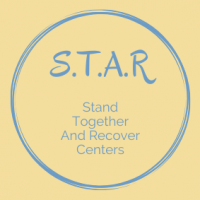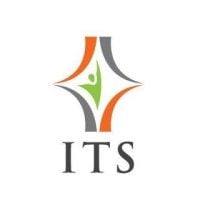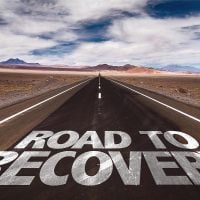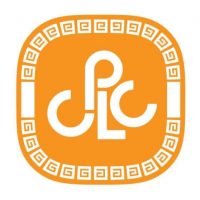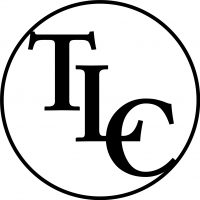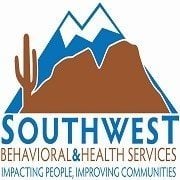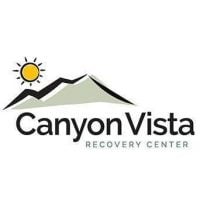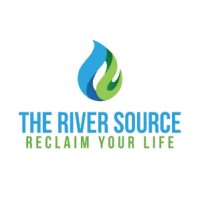Stand Together and Recover Centers
Drug Rehab Center in Mesa, Arizona
Stand Together and Recover Centers in Mesa, Arizona, offers comprehensive mental health treatment options, including evidence-based care, specialized therapy, and aftercare support, with a focus on individual needs and long-term wellness.
About
Stand Together and Recover Centers is a comprehensive mental health treatment center located in Mesa, Arizona. The center provides comprehensive evidence-based care with a holistic approach to address individual needs. They offer a range of treatment options tailored to their patients’ needs with specialized therapy available in a variety of settings, from outpatient to inpatient. In addition to proven therapies such as Dialectical Behavioral Therapy (DBT) and Cognitive Behavioral Treatment (CBT), their treatment services encompass a spectrum of individualized approaches including creative arts therapy, trauma therapy, fitness therapy and recreational therapy.
The team of experienced, compassionate professionals at Stand Together and Recover Centers is dedicated to helping individuals achieve recovery. The center’s comprehensive and personalized approach to treatment helps patients build coping skills and develop a path to long-term wellness and recovery. In addition, they provide aftercare support, life skills, and vocational assistance to ensure sustained success and quality of life. Stand Together and Recover Centers accepts private health insurance, making treatment accessible and affordable.
Genders
Ages
Modality
Additional
Conditions and Issues Treated
Levels of Care Offered
This center offers a variety of custom treatment tailored to individual recovery. Currently available are Aftercare Support, Inpatient, Outpatient, with additional therapies available as listed below.
Inpatient treatment centers offer a safe, secure, and often medically supervised environment for drug or alcohol-addicted individuals. Many of these facilities are equipped to provide detoxification, treatment for co-occurring mental health disorders, and aftercare programs.
The patient typically spends 28 to 30 days at the facility and will receive extensive drug counseling. They will also learn how to live without drugs and how to make the right decisions in life.
An outpatient treatment program is set up to help with alcohol or drug addiction or a co-occurring disorder. The treatment must attend the treatment facility for their therapy and other programs but return home each night. The frequency of mandatory attendance decreases after much of the treatment program is complete. The treatment programs are monitored by the treatment facility and case managers who work for a judge or judge’s office. A treatment program may be performed out of a treatment facility, treatment clinic, or treatment center.
The benefits of outpatient treatment programs are many. One of the most beneficial treatment programs is that it allows treatment for clients who cannot afford or may not be able to attend treatment at a treatment facility, treatment center, or treatment clinic full-time. Another benefit of treatment programs is that they reduce crime rates because treatment allows people to treat their addiction.
Recovering drug addicts need aftercare support when they leave treatment. The support can include guidance through 12-step programs, outpatient rehabilitation programs, and support groups. Aftercare supports the individual in their desire to maintain sobriety by reducing relapse risk with positive choices.
The success of drug treatment does not end when the addict leaves the rehabilitation center. There is no such thing as a “one and done” type of rehabilitation process. Recovery is a lifelong journey that begins with treatment and continues by the addict committing to outside support groups or drug rehab programs.
When choosing a program, it is crucial to choose one that will provide long-term aftercare support. This ensures that you have the tools you need to sustain your recovery.
Therapies & Programs
Individualized Treatment is essential because it gives addicts the ability to participate in a program that meets their unique needs. An addict should work with professionals who understand what they’re going through, especially if the addict is actively using. Finding the right treatment program for an addict is difficult, but it’s even harder without communicating with those who have experience treating your specific situation.
Group therapy sessions provide recovering addicts with a chance to cope with everyday situations that many face. Group therapy sessions are held in rehab facilities, clinics, churches or community centers that offer drug addiction treatment.
People who attend these groups are encouraged to voice their feelings and support other addicts in recovery. This helps group members strengthen their own recovery program while cheering on others who are struggling with sobriety.
Trauma therapy allows them to work through past trauma to have peace of mind and begin down the road of sobriety. The therapist will work with the individual to help them understand their past and present relationships. Patients may often believe that something is inherently wrong with them or they are unworthy of love. The therapist aims to correct these negative feelings and behaviors by helping the person realize that their actions do not reflect who they truly are.
Dialectical behavior therapy, or DBT, is one form of cognitive behavioral treatment. This type of therapy typically involves both individual and group sessions with a therapist on a regular basis.
It uses concepts like mindfulness training to help addicts learn how to identify their thoughts, feelings, behaviors and the experiences that trigger them so they can avoid relapse. DBT also teaches addicts how to regulate their emotions, which can make it easier for them to avoid or overcome negative thoughts and cravings.
Cognitive Behavioral Therapy (CBT) is a highly effective treatment option based on the idea that how we feel, think and act all interact together. Our thoughts determine our feelings and behaviors; our feelings affect our thoughts, and our behaviors change our thoughts and feelings. CBT helps people explore their thoughts for problems (or false beliefs) that influence their mood and actions. By examining their thoughts and beliefs, people can recognize distorted or irrational and modify them to more realistic, positive ones. CBT is very goal-oriented, which means that the therapist and patient work together on a specific problem while learning to become more adept at solving future problems.
CBT works well with a broad range of people, including those with depression, anxiety disorders, eating disorders, and problems with anger. In addition to helping a client focus on thoughts that can be changed, CBT also allows them to take an active role in their treatment. This is called a collaborative approach because both patient and therapist work together to produce the best possible results.
CBT is based on cognitive learning theory, which says that our behavior is a learned response to our environment. Cognitive refers to thoughts and beliefs, while behavioral relates to actions or deeds. CBT helps people learn ways of behaving to improve their quality of life by focusing on specific problems or goals they want to achieve. Sometimes, CBT is used alone; other times, it is combined with medications or brief counseling techniques such as solution-focused and motivational interviewing to achieve optimal results for the patient.
Life skills training is beneficial for addicts in recovery because it helps them learn how to take care of themselves and improve their quality of life, which can promote feelings of purpose and motivation.
This works by teaching individuals life-enhancing skills that support positive living, including:
- Healthy lifestyle habits
- Skills to effectively manage stress
- Effective communication skills to help them get their needs met without turning to drugs or alcohol
- Money management and budgeting skills so they can continue to take care of themselves after treatment ends.
For people trying to kick their drug addiction, nutrition therapy at Stand Together and Recover Centers is a great tool. Nutritional deficiencies gradually creep in, and before you know it, you’re facing health problems. It helps restore balance to the body, and for many addicts, it represents the first step on the road to recovery.
Nicotine replacement therapy was developed to help people quit smoking. It does so by providing small doses of nicotine that control cravings and break smoking habits.
NRTC products like skin patches and gum deliver low-dose nicotine that prevents cravings, making the transition from smoker to non-smoker easier.
Patient Experience
Creative Arts
Creative arts therapy is not a new form of therapy. It has been practiced for over 100 years, using art as its main form of therapy. Initially used for children, over the past few decades it has been recognized as an effective treatment option for adults too. It is now practiced in psychiatric hospitals and drug rehabilitation centers worldwide.
Creative arts therapy may include painting, drawing, writing poetry or song lyrics to express oneself where words would fail to capture the true feeling. It is an outlet for personal expression in a safe environment without fear of judgment. Weaker outlets, such as writing poetry or song lyrics, may be used to explore emotions that are difficult to tackle head on in other ways. The creative process allows the patient to connect feelings and thoughts together which helps to balance their mental state.
Experiential Therapy at Stand Together and Recover Centers
Drug addicts can benefit from experiential therapy, which involves real-time activities to process trauma and emotions. This type of therapy is available at Stand Together and Recover Centers and can help reduce the need to resort to drugs and alcohol. Activities may include role-playing, use of props, and others. The individual learns to release suppressed thoughts that lead to negative feelings and embrace the present moment. Experiential therapy is beneficial in treating various disorders, including drug addiction, eating, and behavioral disorders.
Fitness Therapy
Fitness therapy is a great way to improve physical and mental health. It can be used in combination with other therapies to help people recovering from addiction. Exercise releases feel-good chemicals, helps with self-discipline, and can improve moods. Fitness therapy can help people heal physically and mentally from the damage done by addiction.
Payment Options Accepted
For specific insurance or payment methods please contact us.
Is your insurance accepted?
Ask an expert, call (888) 674-0062
Additional Details
Specifics, location, and helpful extra information.
Mesa, Arizona 85201 Phone Number(480) 649-3642 Meta DetailsUpdated November 25, 2023
Staff Verified
Patient Reviews
There are no reviews yet. Be the first one to write one.
Mesa, Arizona Addiction Information
Arizona has some of the highest rates of prescription drug abuse in the United States. Methamphetamines, heroin and morphine are among the most commonly abused substances. Prescription pain relievers were prescribed to 348 million people in 2012, enough to medicate every adult in Arizona for 2 full weeks. The number of people with substance use disorders in Arizona has remained relatively constant over the past few years.
Mesa, Arizona, has a higher rate of drug abuse and addiction than the national average. 1 in 10 residents struggles with drug abuse or addiction. The majority of those who struggle with substance abuse in the city is between the ages of 18 and 25. If you or someone you love is struggling with drug addiction and abuse, it's important to get help as soon as possible.
Treatment in Nearby Cities
- Sacaton, AZ (24.9 mi.)
- Sahuarita, AZ (114.2 mi.)
- Kingman, AZ (175.0 mi.)
- Laveen, AZ (18.4 mi.)
- Cornville, AZ (89.6 mi.)
Centers near Stand Together and Recover Centers
The facility name, logo and brand are the property and registered trademarks of Stand Together and Recover Centers, and are being used for identification and informational purposes only. Use of these names, logos and brands shall not imply endorsement. RehabNow.org is not affiliated with or sponsored by Stand Together and Recover Centers.
